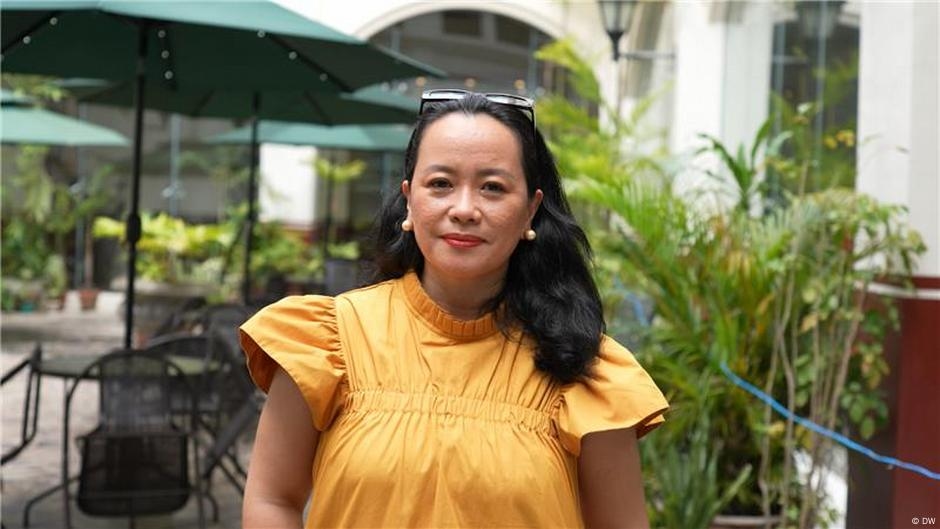Guest of Honour Philippines at the Frankfurt Book Fair 2025

The Frankfurt Book Fair is considered the world's largest trade fair for books and media. It brings together experts and the public from all over the world every year and is considered a central meeting place for publishers, authors, agencies, and the media. The book fair also promotes international cultural exchange and the visibility of literary diversity. This year, the Philippines is the guest country.
And there's actually something to discover: 40 new translations by Filipino authors that will whet your appetite to get to know the country and its literature better. We present a selection. It's a journey through history that begins with a real DW trip to Southeast Asia.

On the campus of the University of the Philippines, in the greater Manila area, we meet perhaps the country's most important writer today: José Dalisay. His debut novel, "Killing Time in a Warm Place," was recently published in German. It is the story of a group of young people who rebelled against the regime of Ferdinand Marcos in the early 1970s. He then imposed martial law and persecuted the leaders. But many were also broken and came to terms with the system. José Dalisay is one of them. His novel describes a society that has not recovered from its wounds even after the end of Marcos's rule in 1986. To this day, the country is ruled by family clans. "We were all euphoric," says Dalisay. "What an irony that we took to the streets to remove the dictator Marcos from office and are now under the rule of his son ."
Dalisay considers his influence as a writer to be limited. He says the government is "uneducated and immune to metaphors. However, if you're a journalist, you could get into trouble. We novelists are privileged to be spared from that, at least for now."

In her novel "Remains," Daryll Delgado describes how language can save or destroy lives, telling the story of a natural disaster of biblical proportions. In November 2013, Typhoon Haiyan hit the Philippines, killing thousands and causing billions in damage. Unfortunately, this has become almost normal in the Southeast Asian island nation: The 2025 World Risk Index names the Philippines as the country most at risk from natural disasters worldwide. Daryll Delgado was there in 2013 as an NGO worker. Her experiences at the time formed the basis for this powerful novel. Amidst death and destruction, the novel's main character, Ann—Daryll Delgado's alter ego—is confronted with her own family history, which was implicated in crimes committed by the Marcos regime.
"Remains" isn't just an exploration of the Philippines' recent history, nor is it simply another climate fiction novel. Daryll Delgado also reflects on the consequences of Spanish and American colonialism and its impact on identity and language. There are around 170 languages spoken in the Philippines; in the disaster area, all warnings and later all information for the population were in the official languages of English or Filipino – languages that few people there understand. Daryll Delgado: "If we say that the stories of the local people are important, in what language should they be told? They have to be told in the language that people understand."
A writer as a national hero of the PhilippinesAt the end of the 19th century, the language understood in the Philippines, at least by the social elite, was Spanish. Spanish colonial rule had already lasted over 300 years. In 1887, the novel "Noli me tangere" was published – in Spanish – and its author is now celebrated as a national hero. José Rizal, ophthalmologist, writer, and cosmopolitan, dared the impossible: He criticized the power of the Catholic Church, the inequality, and the corruption of the Spanish colonial rulers. The book was quickly banned under pressure from the churches and those in power. The republication of the 1987 German translation is one of the highlights of the Philippines' guest country appearance.

But it wasn't this novel that ultimately cost Rizal his life, but his anti-colonial writings and his contacts with insurgent rebels. In 1896, José Rizal was executed at the age of 35. Two years later, with the help of the Americans, the Spanish were expelled from the Philippines. Today, Rizal is celebrated as a national hero; his death anniversary, December 30th, is a public holiday, and "Noli Me Tangere" is required reading in schools. His biographer, Ambeth Ocampo, believes he knows why this fascination with Rizal continues to this day: "Rizal is our national hero because he imagined a nation before it even existed. And it is precisely this imagination that drives us and makes us what we are today." The impressive books that can now be discovered demonstrate that what the Philippines is today also means constantly re-examining the past.
dw





